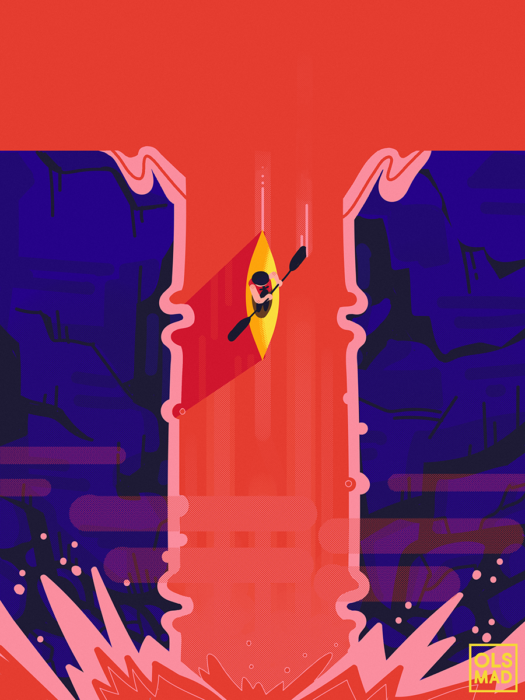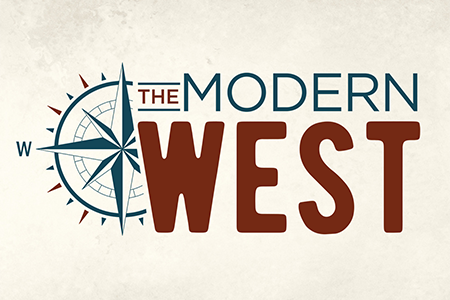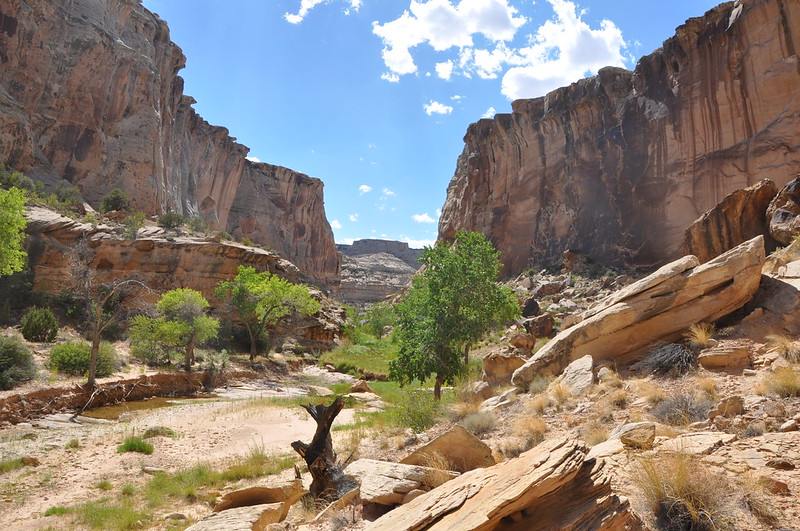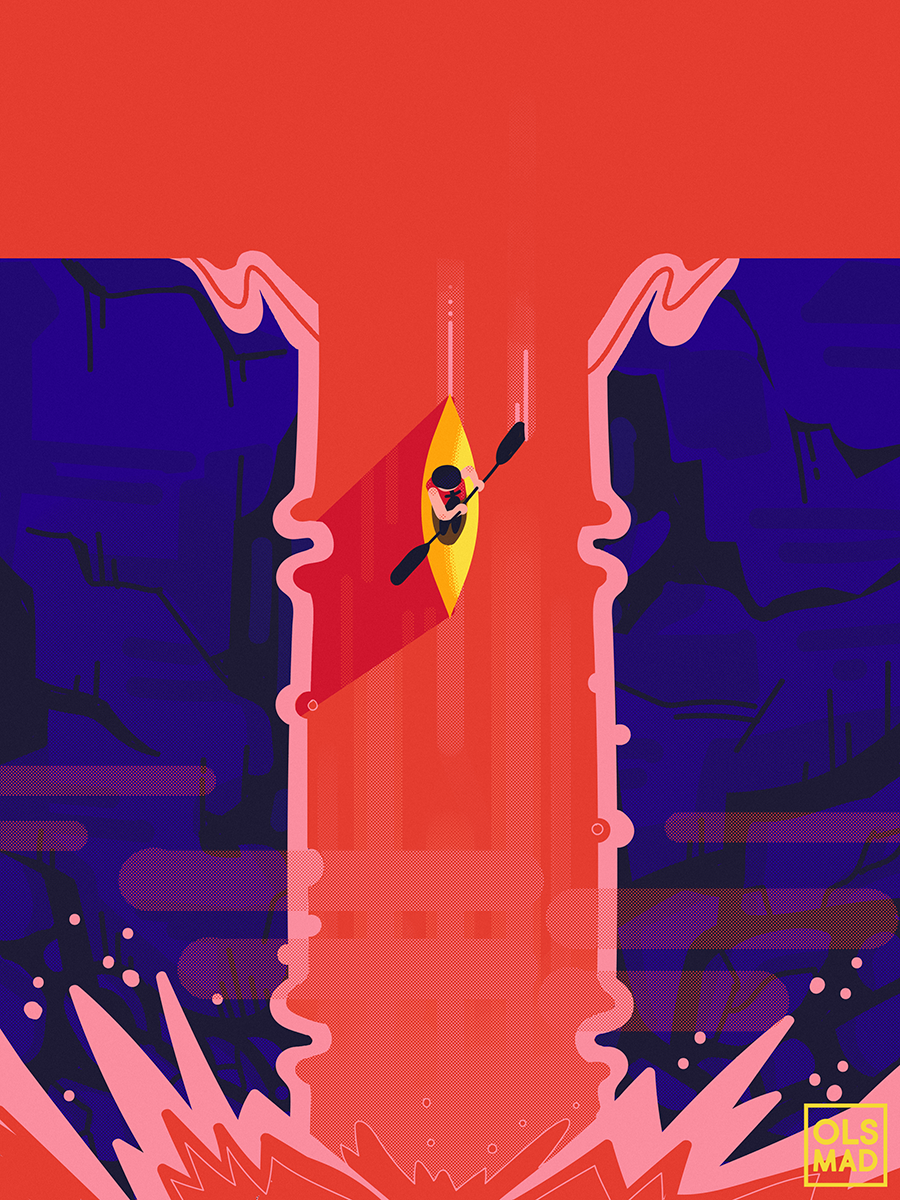
Bitterroot is partnering with the The Modern West podcast to examine the resilience of Western people and towns. This is Part 3 in the series.
Part 1: The Blackfoot Watershed: Montana’s Laboratory for Rural Collaboration
Part 2: This New Mexico Town is the Next Adventure Hub. Can it Quit Fossil Fuels?
Part 4: This Oregon Town is a Hotbed of Latinx Political Leadership
Part 5: Colville, Washington Survived the Timber Wars. Now It’s Tackling Wildfire
When river guide Telly Evans died by suicide in 2010, shock reverberated around the guiding community in Idaho.
Evans, 35, had been working on the Middle Fork of the Salmon River since he was old enough to guide. Friends remember him as thoughtful and generous, a man who would drop anything to help others. Recognizable by his big red beard and sideburns, Evans was a talented naturalist whose commitment to the wildlands and rivers of Idaho kept him in his boots, on his skis, or in a boat, season after season.
Few recognized until it was too late that, behind the kindness and his giant laugh, Evans struggled with depression.
It’s an issue that’s prevalent, yet often ignored, in the guiding community. Despite working in beautiful wilderness destinations around the West, guides and outfitters face numerous challenges that can exacerbate mental health issues. When they’re not in small towns that generally lack adequate mental health and medical facilities, they’re in backcountry settings without access to any sort of help. Cultural stigmatization of mental illness, guides say, is prevalent in both rural areas and the outdoor community. Add in substance abuse, the potential for trauma on the job, and the seasonal nature of both work and community, and guides can find themselves enmeshed in mental illness with few options for help.
From our sponsor

A new season of The Modern West podcast is exploring the evolving identity of the West though ghost towns past and present — and asking, why should we care if America’s small towns disappear?
Such was the case for Evans. “He was a man’s man in the way that he wasn’t going to talk about mental health, and we saw that as really a symbol of the guiding community,” said Brain Chaffin, a close friend of Evans’s who first met him while guiding on the Middle Fork of the Salmon. “And we decided it was time. We needed to do something.”
Chaffin, his wife Jenni, and a few other guide friends wanted to honor Evans’s memory, and to prevent more suicides within their community. They contacted Evans’s mother, Jane, and asked her permission to start a support organization in her son’s honor.
Jane agreed. If we save just one life, she told them, it’ll be worth it.
Later in 2010, the Redside Foundation was born. And it has saved numerous lives, Chaffin says.
The nonprofit, named for one of Evans’s favorite rapids on the Middle Fork, as well as his memorable red hair and the native sockeye salmon, has spent the last decade offering support in various forms to the 2,500 registered guides in Idaho.
Interest in Redside’s services, Chaffin says, is growing every year. One of their first and most popular programs, a 24-hour confidential hotline, connects any guide who calls with a counselor and covers the bill. The group’s annual health fair offers medical check-ups to guides who often lack health insurance. Further, the organization has a financial health hotline, academic scholarships, and professional development grants. In 2019, Redside sponsored 85 counseling sessions, gave out $3,000 in academic scholarships, and doled out more than 20 grants.
Shannon Walton, Redside’s executive director since January, worked as a river and ski guide around the West in the late 1990s and early 2000s. During that time, Walton struggled with seasonal depression and the constant transition between communities and jobs. “I didn’t have the language at the time to know that I was depressed, or that I was experiencing some mental health issues,” she said. Looking back, “I definitely saw people who could have really used the Redside services, and I could have used the Redside services myself.”
This story first appeared in the Bitterroot Newsletter. Sign up below to get our stories direct to your inbox.
Mountain West states, where many guides work, have the highest suicide rates in the country, a trend some researchers theorize is connected with the prevalence of guns and a cultural stigmatization of mental health treatment. No formal study has looked explicitly at the challenges wilderness guides face, but Walton, Chaffin, and others say the profession comes with inherent risks to one’s mental health. Guides spend every day with friends and coworkers, but then undergo an abrupt separation when the ski, boating, or fishing season ends. Those who stay in the business long enough will be involved in a rescue or, worse, a body recovery — traumatic events that rarely get processed in an outdoor culture that’s not conducive to frank discussions about mental health.
“When you’re guiding, you never share anything about your personal life,” Walton said. “If guests ask you questions about yourself, you might get to where you’re from, if you have brothers and sisters. But you don’t ever tell anybody anything else. So you kind of get programmed to not dive deep into your own feelings. Forever, there’s been the idea that if you have feelings, you’re weak.”
When the COVID-19 pandemic first swept the globe this winter, Redside rushed to expand its offerings as guides lost work. Redside compiled and shared resources on how to stay mentally and physically healthy, what outfitters were doing to keep guides and clients safe, and how to run a tourism business during a pandemic. Recently, Redside ran a webinar on COVID-19 and river guiding that maxed out their Zoom account with 100 participants from all over the country. And the helpline, Walton said, has been busier than ever.
Organizations outside Idaho have kicked into high gear, as well. Soon after the pandemic started, Mollie Simpkins, the director of conservation and education at Sweetwater Fly Shop in Livingston, Montana, and KynsLee Scott, a fishing guide based in Missoula, started the Guide Relief Program. Initially, the goal was to provide financial support to some of the state’s 1,600 registered fishing guides who had lost work, but the program’s scope has expanded. Simpkins said that, on any given day, GRP liaisons might help a guide navigate the unemployment system, provide resources on COVID-19 safety, or simply act as a sounding board to remind fishing guides around the state that they are not alone.
“You know what the pandemic did? It made us realize that the 1,600 guides in this state have no place to turn for very specific things like mental health, or to help navigate something like this,” Simpkins said. “So is the group something whose time has come? Yes.”
The original organization of this kind, the Whale Foundation, has served the Grand Canyon river guiding community for over 20 years. Sam Jansen, a longtime Grand Canyon guide and the foundation’s executive director, said that COVID-19 has thrown a new layer of anxiety and complexity into guiding — especially for those who missed out on an entire season’s worth of work thanks to travel restrictions. “A fair number of guides live closer to the edge,” Jansen said. “They weren’t set up to handle such a hit, so that’s been really challenging.”
Since the pandemic struck, the Whale Foundation partnered with two other Arizona-based nonprofits, Grand Canyon River Guides and Grand Canyon Youth, to form the Grand Canyon Relief Coalition. The joint organization has shared resources, published a special-edition publication, and hosted webinars. The coalition’s Throw Bag Fund — named for the line thrown in the water to pull a swimmer to safety — has delivered more than $67,000 in grants to Grand Canyon guides.
“It’s helped people not become homeless. Helped them have food for a month. One person whose dog was suddenly injured and needed surgery, we helped them with that,” Jansen said.
And of the stigma around mental health and self-care within the guiding community? Jansen says two decades of work seems to be making a difference, especially among younger guides.
Over the years, the Whale Foundation’s emphasis has evolved from addressing immediate challenges to embracing sustained counseling. The Whale Foundation is still there for the acute emergencies, Jansen says, but the group encourages guides to call the hotline for less acute issues.
“When you talk to a counselor, you’re not getting fixed — you’re getting tools.” Jansen said. “I mean, in a way, you’re just seeing a different kind of guide.”
Care about independent Western journalism?
Worth a Read
Top stories from around the West
Heading into 2020, homelessness was going to be a key issue for California politicians. Coronavirus changed all that, the Los Angeles Times reports.
•••
On Wednesday, I wrote that we desperately need another relief package as coronavirus cases skyrocket in Western states. We’ve since learned that New Mexico tallied its second-highest daily case count, and Utah hit a new record for COVID hospitalizations. This is bad, folks.
•••
The Seattle Times reports on a worrying trend: thousands of kindergarteners aren’t showing up to classes, and officials don’t know if they’re receiving any education at all.
•••
Well, I guess our autonomous vehicle future is nearing. Certain folks can now catch a driverless Waymo taxi in Arizona, The Arizona Republic writes.
•••
Christopher Solomon writes in Outside how hop growers fueled the boom in American craft beer. It’s a finicky business — brewers and beer drinkers are constantly looking for new, exciting hop varieties, all of which must be harvested and delivered during a few weeks in the summer.
Love this newsletter? Spread the word.
Your Land
An ode to our public lands

Share with a friend | Watch a cat video | View previous newsletters

